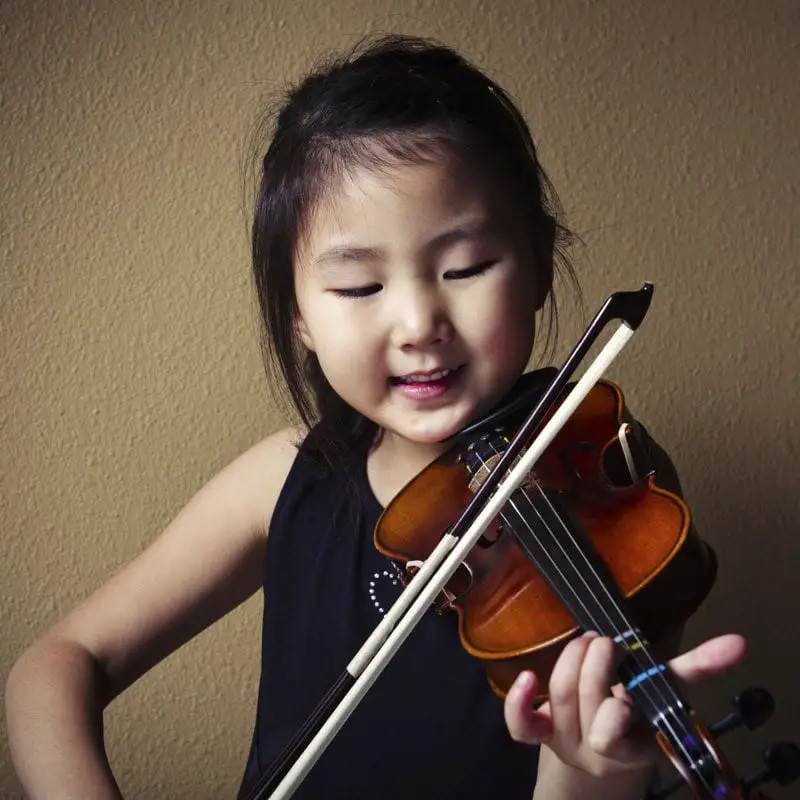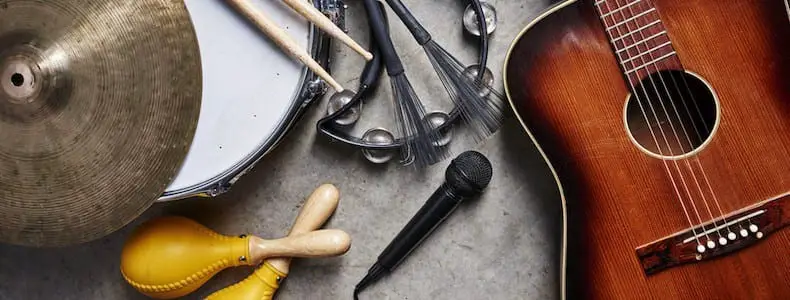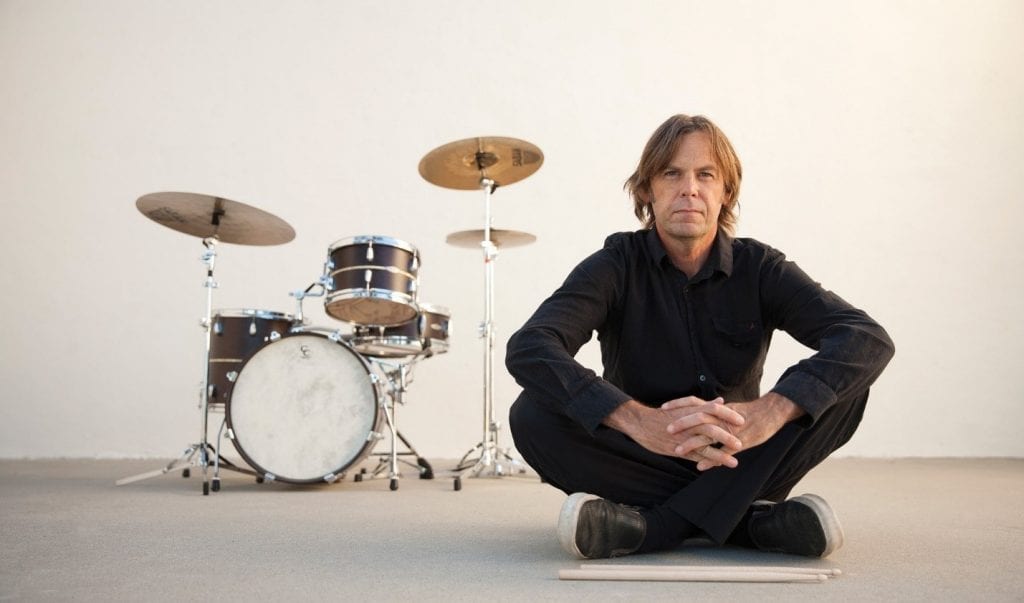With every session you allocate for practice, your skills to create good music flourishes. Regardless of how skillful you are, you will still have to practice music and grow your ability to play your chosen instrument. Thus, ultimately improve your capability to put down your lyrics and create your songs.
Although music practice can be a fun thing to do, this should not be the reason why you should do it. Practicing music is an important process that helps you become closer to your musical goals. As people engage in music practice, they also take components of their playing that they see hard, and carefully play them until they become manageable. The moment that they are practicing becomes a natural habit, playing the musical instrument can then become so much fun.
However, before you reach that stage, you should know that it will take so much hard work and focus. If it does not turn out as expected, then there is a possibility that you are not doing it right.
Is Practicing a Waste of Time?

Well, if you do not practice the right way, then there should be a good reason to say that your music practice is simply a waste of time. Except if your goal is to draw joy and fun, there should be no reason for getting into your position to practice music and perform something that you are already good at for 10 to 20 minutes. That is not how better players do.
Anyone would want to develop something good from their practice. But then it is essential to know that practicing music should be strategic and proper. There are right ways on how to optimize your music practice, and once you can deliver these tips well, then you can say that practicing is all worthwhile. Remember that you are doing it because you love music.
Tips in Optimizing your Music Practice

If you are an enthusiast for music, you should already know that there should be plenty of habits needed to prosper and become a better player. Below are some tips on how to integrate some habits in your practice for music to attain musical objectives directing to great triumph:
1. Setting up your space
Practicing your music is best done if you have a good space where you can synchronize with your thoughts. Regardless if you prefer to get a space that has a quiet environment where no one is prone to disturbing you or be in a place that is quite more energetic, try and determine what works efficiently for you and be consistent. You should be able to find a specific area for your practice that will set you mentally prepared for this kind of task. The attentive goal is everything, and getting the routine of going to a similar place each time may help establish that motive.
2. Preparing your space
If you are assigning a particular place for your practice in music, see to it that it is equipped with everything you will need, so do not have to go somewhere else to grab other items to complete the minimal tasks when you should be concentrating on your music practice.
Remember to prepare snacks, water, paper, pen, extra wires, replacement pickups, overhead mics, pedals, guitar headphones, and alternative cymbals – everything that you would possibly require to completely concentrate on the artistic side of your music.
3. Practice intelligently but not necessarily excessive
There is no question about the importance of hard work in attaining your desires or at least be contented with your method of play. Nevertheless, it would be more efficient if you try to work gradually daily, rather than overworking yourself 8 hours a day. Although that approach may work on some people, that does not mean that it can work to all. Remember that quality should weigh more over quantity.
You may probably achieve many things in just a matter of a short period if you establish a focused goal – and science explains to us that the amount of our willpower is only limited. Thus, it would be smart to utilize your time. Use your time effectively.
4. Do a warm-up stage
Think about trying to perform excessive workouts if you have not rehearsed your muscles. Allow your mind to ramble, ponder, simply operate your instrument thoughtlessly or concentrate on your breathing. Whatever would suit you, try to prepare not just your body but also your mind before every practice to achieve optimal outputs.
Warming up will help you prevent making mistakes from occurring later on during your session for music practice.
5. Cut the cards
Like many things in man’s life, it is great to set a goal that would serve as your target towards the end of your practice. You may have some thoughts about this. Music is something about creativity and allowing the mind and soul to take control.
Nevertheless, setting an objective is good, so you would be given a direction and purpose – something that is essential in turning wonderful things to happen.
6. Surpassing issues
Remember the different kinds of issues you faced in your life. When you are practicing your music or playing an instrument, and you think that things are not doing good or sounding like how you want it to, what would be your step?
Would you simply surrender and end your passion for music and stop your practice? Or would you continue until you fix your errors and achieve your goals? Now, use this logic even if you are not dealing with music.
7. Carry out visualizations
Although music roots from the heart and soul, it is still the brain that manages your hands and works to create the music. Thus, you have to establish a good connection between the mind and the soul.
This can be done by envisioning yourself operating your instrument, even if you are not playing. This may help you to keep focused, persuaded, and may even encourage you to make a masterpiece.
8. Do not force it
Although being pushy towards yourself and keeping disciplined is an essential aspect of becoming creative and playing music, it would be easy to be trapped in trying to force things and have them actualized. If there would be a time where you do not feel the mood of practicing your music, you do not have to force yourself to do it.
Rather, perhaps consider performing something that is still associated with music or anything that would enhance your practice, without directly bringing yourself to practice, such as reading an article about your favorite artist or searching a piece of new music.
9. Slow and steady triumphs the race
You can be easily fallen into a trap by attempting to go directly into a song and attempting to complete it efficiently right on the first time. It would be good if you try to take a slower pace. Remember that you have plenty of time to finish your piece.
Regardless if you are merely practicing a portion of a song or practicing the whole song, take gradual pacing and then begin to establish it as you become more confident with your skills.
10. Take a list on your work
You may think that you are not the winner type when it comes to the output of your work done during the day; however, that does not imply that the experience you have had is any less important. If you are targeting to finish a piece, consider making a note, even if you do not see the clarity of where it is heading.
You would never know, maybe after a week you will review your notes and be newly inspired with what you have written.
11. Make an audio note
Together with the consideration presented above, why not consider recording the piece physically so you may listen to it during a later date and assess how it sounds.
The same way when you are searching for a piece of music to listen to, there are days that you may prefer it and can suit with it. Others may not. This is the illustration of the creative process.
12. Maximize the use of technology
If you are finding a way to motivate yourself into going to practice, it would be easy to find many excuses to stop yourself from proceeding to practice.
Rather, put in mind that there are plenty of tools and applications on the computer or mobile phone for you to use so you can optimize your music workout and shall keep you working. Furthermore, conventional technology accessories such as amp attenuators do the task of playing your chosen instrument a glide.
13. Allocate some dedicated moment aside
Although all efforts rendered to practice is constructive, as well as every experience, either pleasant or unpleasant at the time, shall have a favorable advantage to your skill, you may consider doing certain things to impact your workouts the best way they can be.
This implies allotting some time aside for your practice every week – implying that you can concentrate that time as all possible kinds of stuff that may cause you distraction are left behind. When you set things to be done in your day, it will eventually become a habit. Music practice can work to improve your skills.
Your schedule should have a particular time that is efficient, ideally every day. If you are a starter, 20 minutes a day would be fair enough. If you consider yourself to be at an advanced level, then you should at least allocate 1 hour a day for your practice to further develop your skills. The important component of impressive music practice is to do it consistently. Consistency means making it a habit; hence, stick with your schedule no matter how challenging or difficult it can be.
Just make sure that you keep some variation in your itinerary so that your allotted schedule will not be tiresome and dull soon enough. You may try that by engaging in new sounds, establishing your strengths, overcoming your weaknesses, trying to play a new instrument, and more.
14. Simply go with the flow
Although allotting an exclusive time for your music practice can be largely useful to your skills, there can be times that you will have an inevitable yearning to execute, even if you are engaging in something else. Nevertheless, these stimulating surge should not go noticed.
If you cannot proceed with the practice, why not consider envisioning what you are thinking about, or perhaps make some notes so you can easily recall your ideas when you are about to practice.
15. Practice everyday
You may think that your time is very limited that you can hardly spare some time for your music practice. If you have this kind of thinking, consider the total number of hours you spent in a day to browse social media.
The US has an average daily exposure to social media of 5 hours. It then becomes clear that many of us can have suitable time for music practice if the heart and dedication are there.
16. Have a calendar
Together with the points shared above, even if you cannot practice your music daily, consider keeping a diary of when you practice so you can easily recall and review exactly the duration of time you have been working out your music every week.
If you increase the number of minutes or hours spent for your practice every week, and you have the feeling that it is still very short and you can still manage to even go higher, then you can tell that you have a firm foundation.
17. Eat, get sleep, rhapsodize, and repeat
Similar to other things in life, the ingredient to becoming excellent in playing music and becoming superior about something you are enthusiastic about is recurrence.
There would indeed be times that you will feel bored with your schedule, or things will not turn out the way you want them to be; however, you have only statistically reached that stage because you kept on doing something very dear to you for quite a while already.
18. Do not focus on becoming the best
It is very easy to develop in your mind that you want to become the best player of a guitar with impressive shredding skills, fingerpicking skills, or something like. Nevertheless, this may simply bring you to a trap where you are making a comparison of yourself with others and not feeling satisfied yourself.
Rather, bear in mind that creating music is something you adore and is truly special to you, and you are engaging in it because you have a valid reason for it – not because you aim to outplay others.
You are not expected to produce a total excellent tone and get the best gear. Bear in mind; skill predominates supreme over the value of the device any day. A famous fingerstyle player may sound a lot better over many people even if they are given the electric guitar equipped with an acoustic stimulator pedal.
19. Finger exercises
If you are using an instrument that is strung, you must exercise your fingers before you begin your play. Else ways, you may end up injuring your hands’ muscles and may damage them eventually. Rather, have your fingers stretched out and begin slowly, then establishing your music practice.
20. Be at ease
If you are performing in a venue where you are not comfortable and happy, there would be a good chance that you cannot deliver and play well. And as a result, you will feel disappointed and frustrated at what you are doing.
Regardless if it is a situation of transferring room or having a comfortable cushion or chair, this will make a total difference on your experience for music practice.
21. Solicit feedback
Even though you may not have gained the confidence yet to play in front of a large group, why not consider performing in front of your family and friends? It should not matter whether you are playing other people’s pieces or you will do your own, soliciting feedback is an effective way to know what people can say and what would sound good.
22. Always be patient
Although most of you may have heard this advice all over, patience is an essential part of learning to play a musical instrument. It can create astonishments in your entire life if you can carry it out into each thing you do. Particularly in music practice, patience is highly applicable. Things can be hard as you make your music, and if you do not have enough patience to endure these complications, there would be a good chance that you will not succeed in your practice.
Indeed, you cannot be a big star overnight, but rather within months or years. Just bear in mind that you have plenty of time available, and you will eventually reach your desired status with discipline and drive.
23. Check your instrument
Your music instrument would serve as your leg or arm and is an essential component of your play. Understanding this fact, it would be reasonable to say that maintaining and looking after your musical instrument suitably is such a significant part of your program.
If you are in the complete flow and the device is ruined or does not operate as designed, but it is something you may have prevented if only you applied proper care and maintenance, you are going to end up being annoyed with yourself.
Invest some time taking care of your instruments. You have to make sure that it is always in good condition so you can play music anytime you want. Proper handling and use must always be done in your musical instrument.
24. Set achievements with perks and rewards
It may sound like bribery, but if you would refer to science, you know that this trick can work. Engaging in music and dedicating your time into it would require so much hard work and will surely require plenty of discipline, particularly if you are having a bad day. Rather, why not consider rewarding yourself with something that would excite you once you can complete your project?
If you make music at least one hour a week, why not reward yourself with an enticing trip to simply recognize your effort.
25. Drop your hair
It is important to bear in mind that during the end of the day, you are portraying something that pleases you, regardless if you are still in a beginner status or at the expert level. You practice music because you want to see yourself seizing its potential towards music. If you are in the zone, simply let down your hair and enjoy the music you are creating. Find the freedom to express yourself and perform with your heart and soul. Remember that music is also an expression of yourself, so be open as much as possible.
Conclusion

Whether you have just started your practice or you have been doing it for so long already, learning to perform and play music together with an instrument is not just a scenario of getting it and giving it up. Focus on what you want, stay attentive, and, most importantly, bear in mind that you are performing what you adore and puts a smile on your face. You cannot find the heart of pursuing your practice if you cannot put your heart to what you are doing. That is why you must enjoy what you are doing so you won’t easily give up should things become tough.
The most difficult thing about music practice is sitting down to perform it. Bear in mind; practice is not just about performing something you are already familiar with your instrument. Rather, music practice is an honest evaluation of your playing and dynamically attempting to become better. There are times that it is incredibly fun. There are times it will require so much hard work. But once you can deliver all things right, the outcome is all worthwhile.



